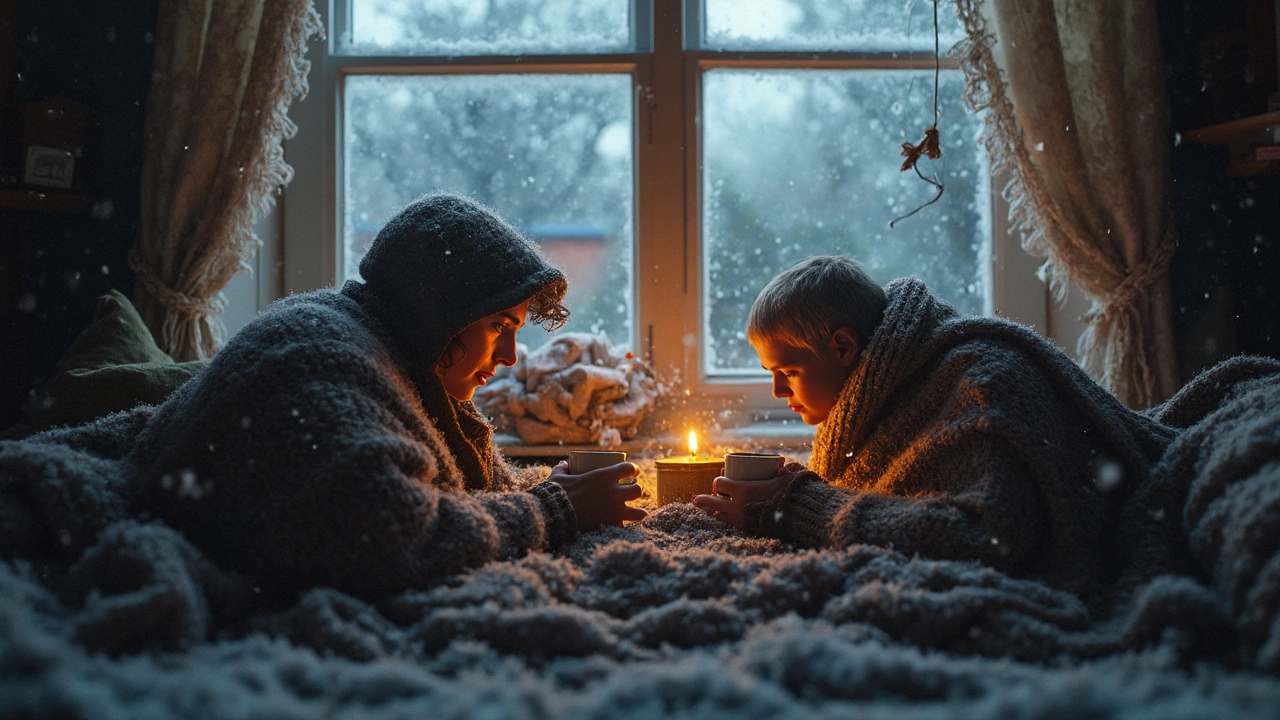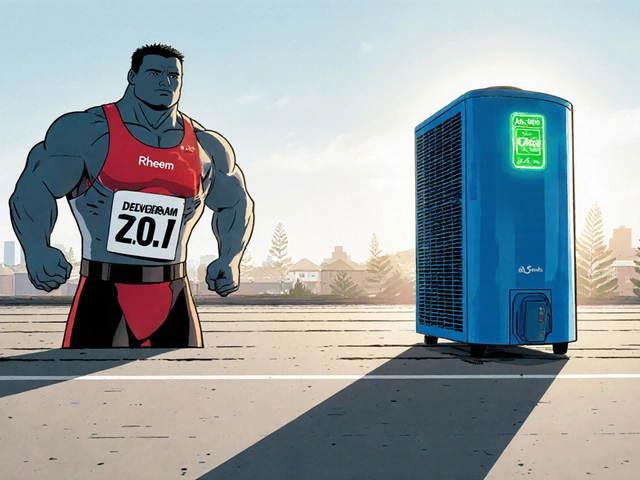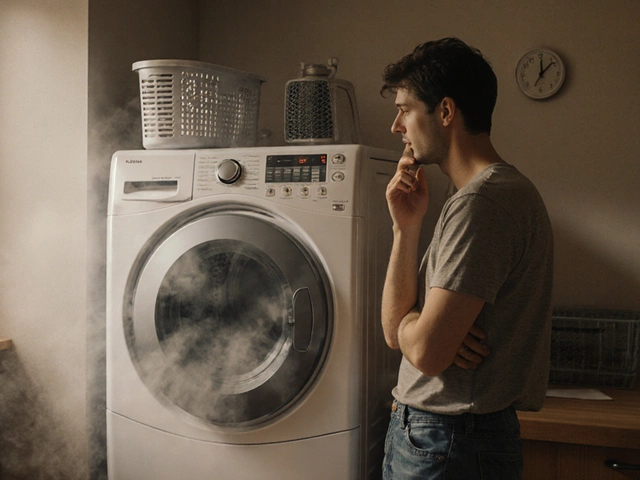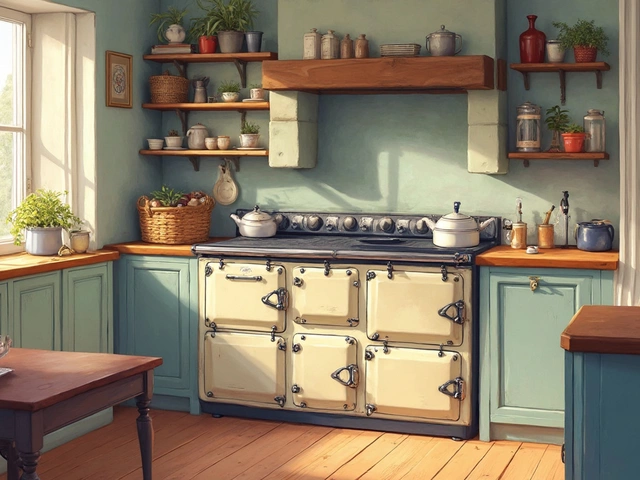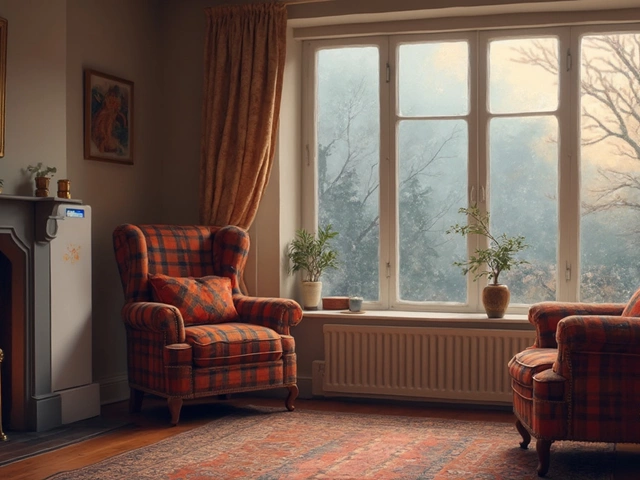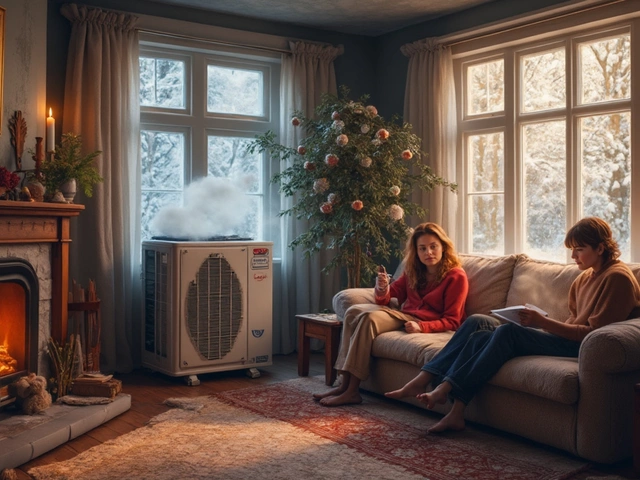So the boiler’s finally given up. First thing on your mind—how long can you really tough it out? That depends on the weather, who lives at home, and how well your place keeps the heat in. In summer, you might just miss hot baths. In winter though, things can get risky fast, especially for kids, the elderly, or anyone with health issues.
Most folks start to feel pretty uncomfortable after just a day or two without heating, especially if the temperature drops below 10°C (50°F) indoors. But here’s the thing—lack of hot water isn’t just annoying. Try living with cold showers, hand-washing dishes with frigid water, and extra laundry hassle. Small things build up quickly.
If you’re renting, this isn’t just your problem alone. By law in the UK, your landlord has to fix essential heating and hot water issues within 24 hours if it’s counted as an emergency. So, don’t just shiver—get in touch with them right away and keep a record of your complaints. The clock is ticking.
- How long can you actually go without a boiler?
- Health and safety risks when the boiler goes out
- What if you rent? Tenant rights and landlord duties
- Making it through: survival tips without heat or hot water
- When does it count as an emergency repair?
How long can you actually go without a boiler?
If your broken boiler has cut off your heating and hot water, you can probably cope for a few days in mild weather—maybe up to a week if you don’t have small kids, older people, or anyone sick at home. But once the thermometer indoors drops much below 15°C (59°F), most people start noticing a real drop in comfort fast. Cold and damp can kick in even quicker if your home isn’t well insulated.
UK guidelines from the Housing Health and Safety Rating System (HHSRS) treat indoor temps below 16°C (61°F) as a health hazard. Below 10°C (50°F), government advice is that you shouldn’t be staying in the property at all. People in risk groups, like little kids or the elderly, need to keep it above 18°C (64°F).
| Indoor Temp | Risk Level | Recommended Action |
|---|---|---|
| 18°C+ (64°F+) | Safe (for most people) | No urgent need for heating fix |
| 15-17°C (59-63°F) | Getting chilly | Use extra layers, speed up boiler repair |
| 10-14°C (50-57°F) | Too cold for comfort | Try alternative heating, monitor people at risk |
| Below 10°C (50°F) | Unsafe | Find somewhere else to stay |
It’s not just about comfort either. Even one or two nights without heating in cold weather can mean pipes start to freeze, damp can spread, and you risk getting ill—especially with young kids or if someone has asthma. So, if it’s cold and the repair isn’t quick, it’s smart to check if friends or family can help you out, or if you qualify for emergency accommodation through your council or landlord.
Hot water is annoying to lose, but a day or two with kettle-boiled water or makeshift solutions is possible. Any longer, and the hassle really adds up—especially if you’re trying to manage showers, dishes, or laundry. If you do decide to wait out the repair, keep an eye on everyone’s health (especially the vulnerable) and don’t be shy about pushing for a speedy fix.
Health and safety risks when the boiler goes out
When your broken boiler isn't working, you’re not just uncomfortable—it can get risky. No heating and no hot water bring a bunch of real health problems, especially if it’s cold outside or someone at home is vulnerable. Here’s what you need to look out for.
If the inside temperature drops below 16°C (about 61°F), people start to feel the chill—this is especially tough for babies, elderly folks, and anyone with a long-term illness. The cold messes with your immune system, bumping up your chances of chest infections like pneumonia and even heart attacks. According to the NHS, cold homes are linked to around 10,000 extra deaths every winter in England alone. That’s not a stat any of us want to be a part of.
No hot water is another headache. It makes washing up and personal hygiene much harder, and that ramps up infection risks—think stomach bugs, colds, and even skin problems if you can’t clean up regularly. If you’ve got little kids running around, hygiene gets even harder to manage.
| Indoor Temp (°C) | Health Risk | Who’s Most at Risk? |
|---|---|---|
| Above 18 | Low risk | Everyone |
| 16-18 | Feeling cold, discomfort | Babies, older adults |
| 12-16 | Increased respiratory risk | Asthma, heart disease |
| Below 12 | Major health risks (heart attack, hypothermia) | Elderly, chronically ill |
Mould is another sneaky issue. Without heat, damp builds up fast, which can cause black mould to show up on walls and ceilings. Breathing in those spores is bad for anyone with asthma or allergies.
- If someone is suddenly shivering, confused, or struggling to breathe, don’t wait—call for medical help.
- If your thermostat drops below 15°C for more than a day or two, especially with kids or older people in the house, it’s time to call for emergency repairs.
- Open windows to stop mould (even though it gets cold), and dry clothes outside if you can.
Bottom line: a busted boiler isn't just a hassle. Pay attention to these signs and act before things go from annoying to dangerous.
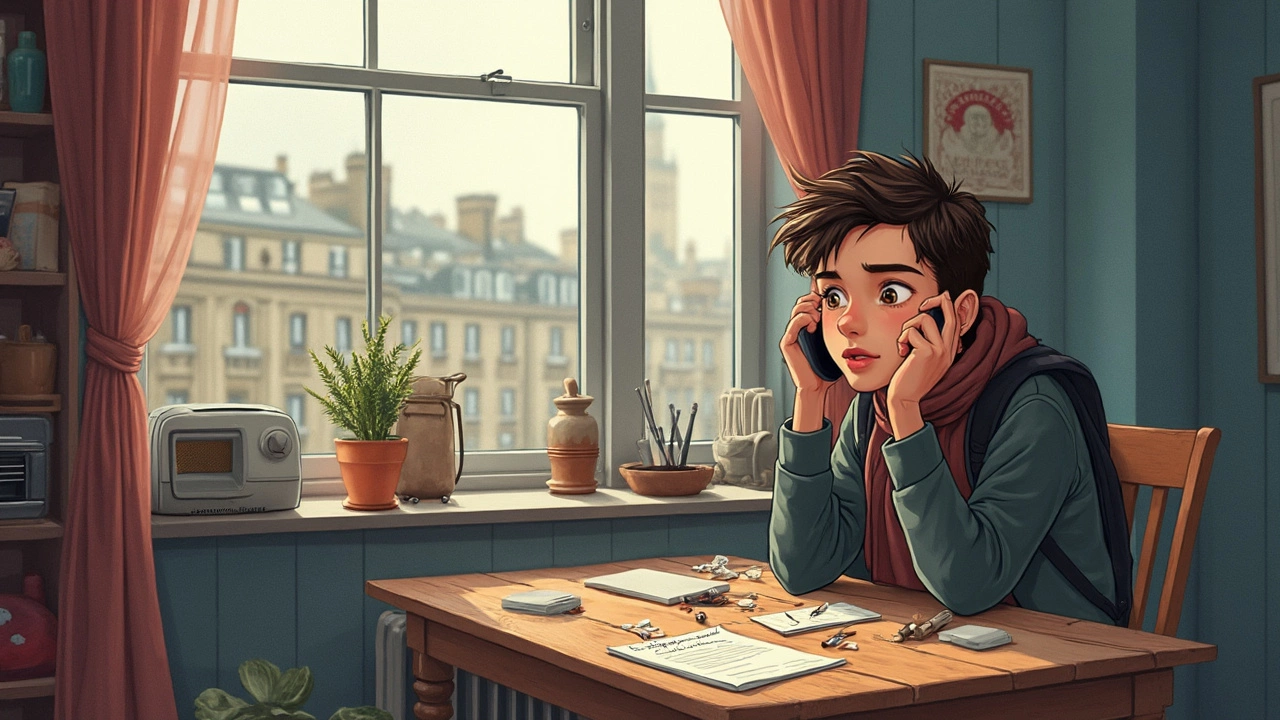
What if you rent? Tenant rights and landlord duties
If you rent your home, the rules are a bit different—you’re not stuck dealing with a broken boiler on your own. UK law is really clear: heating and hot water are classed as “essential services.” This means your landlord is legally responsible for fixing these kinds of problems, no matter how old the property is or who broke the boiler.
Here’s what you need to know if your boiler goes out:
- If you report a broken boiler to your landlord or letting agent and it’s the only source of heating or hot water, they’ve got 24 hours to make things safe if the weather is cold or there’s a vulnerable person in the house.
- Even if it’s not an “emergency,” repairs should be started within a "reasonable time." Most councils say this means 3-5 days max for heating issues.
- The landlord should organise and pay for the repairs. You shouldn’t be out of pocket for call-out charges or replacement parts.
- Keep a record. Always report the problem in writing (email or text works) and snap photos of any related damage or leaks. This comes in handy if things drag on.
- If your landlord doesn’t respond, you can reach out to your local council’s Private Sector Housing Team. They can force repairs if your landlord ignores you.
Check out this quick table for how long landlords have to sort things (according to Shelter UK and gov.uk guidance):
| Situation | Maximum Response Time |
|---|---|
| No heating/hot water (winter or vulnerable person present) | 24 hours |
| No heating/hot water (not urgent) | 3-5 days |
| General repairs (non-urgent) | Up to 28 days |
If the landlord drags their feet, you might be able to claim a partial rent rebate or get the council involved. Don’t wait around and hope—they’re legally on the hook.
Making it through: survival tips without heat or hot water
When your broken boiler stops working, you’re basically camping in your own house. Sure, it’s uncomfortable—but there’s plenty you can do to stay warm and keep things safe until it’s fixed.
Staying warm comes first. In winter, the drop in temperature can actually be dangerous. Public Health England points out,
"Living rooms should be heated to at least 18°C, especially for elderly people and young children."If the whole house feels like a fridge, focus on heating one room. Electric heaters work best, but remember, they’ll drive your power bill up fast, so only use them when you’re actually in the room. If you don’t have electric heaters, grab extra blankets and layer up your clothes. Think T-shirts, jumpers, and hoodies—not just a single thick coat, since layers trap air and keep you warmer.
Here’s a quick cheat sheet for keeping the heat in and staying toasty:
- Block draughts with towels or socks stuffed in gaps under doors and around windows
- Keep curtains closed at night to stop heat escaping (but let sunlight in during the day)
- Roll up a towel and place it at the bottom of doors to block out the chill
- Share a room with others to stay warmer—body heat helps a lot
- Keep moving. Even light exercise keeps your blood flowing and helps warm you up
- Eat hot food and drink warm drinks—soups, tea, even just hot water in a mug
No hot water? You’ve got workarounds. Kettle and pan come to the rescue for washing dishes and even filling a small, safe basin for a “bucket bath.” As crazy as it sounds, baby wipes are decent for a quick clean if you’re desperate.
| Tip | How much it helps (1-5) |
|---|---|
| Electric heater in one room | 5 |
| Wearing layers of clothing | 4 |
| Draft-proofing gaps | 4 |
| Hot drinks and food | 3 |
| Sharing rooms for warmth | 3 |
| Kettle and pan for washing | 3 |
If you’ve got any elderly or vulnerable folks at home, keep an extra eye on them—hypothermia is a real thing. And if things get rough (like freezing temps indoors or health worries), don’t tough it out alone; head to a friend’s place, a neighbor’s, or even a local library or shopping centre to warm up.
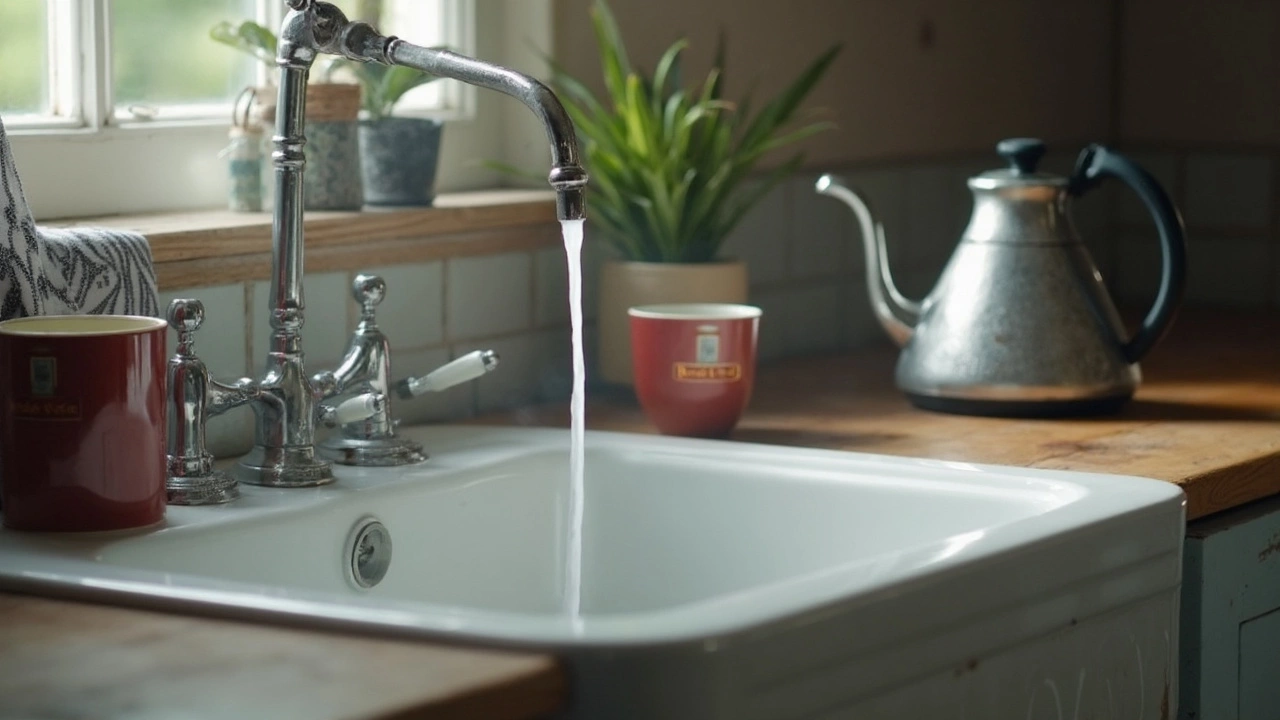
When does it count as an emergency repair?
A broken boiler can go from being a pain to a real emergency, especially when it’s cold. But what actually makes it an emergency repair? In the UK, it's not just about discomfort—there are hard rules and clear guidelines.
If there's zero heating or hot water for anyone in the home, most councils and letting agents agree that's a full-blown emergency, especially in winter. The government says landlords have just 24 hours to sort out serious heating failures. According to the Housing Health and Safety Rating System (HHSRS), homes that are too cold are a “Category 1 hazard”—right up there with the most serious health risks from bad housing.
"A defective heating system must be treated as an urgent repair, especially where vulnerable people or young children are present." — Shelter UK
Certain situations make it more urgent. If you have:
- Children under 5
- Elderly folks or people with health conditions in the house
- Average room temperatures falling below 16°C (61°F)
- An entire household with no hot water
- Broken boiler during freezing weather
It counts as an emergency if it impacts anyone’s health or safety. For private tenants, the law (Section 11 of the Landlord and Tenant Act 1985) says the landlord must fix “the installations in the dwelling-house for space heating and heating water” quickly.
| Issue | Emergency? | Repair Time (UK Standard) |
|---|---|---|
| No heating or hot water in winter | Yes | Within 24 hours |
| No heating or hot water in summer | Sometimes | Within 1-3 days |
| Leaking boiler (water damage risk) | Yes | Within 24 hours |
| Strange noises, but still works | No | Within 7 days |
If your landlord doesn’t act, keep a note of all messages and get in touch with your local council. Emergency repairs mean fast action—don’t settle for excuses, especially if someone’s health is at risk.
